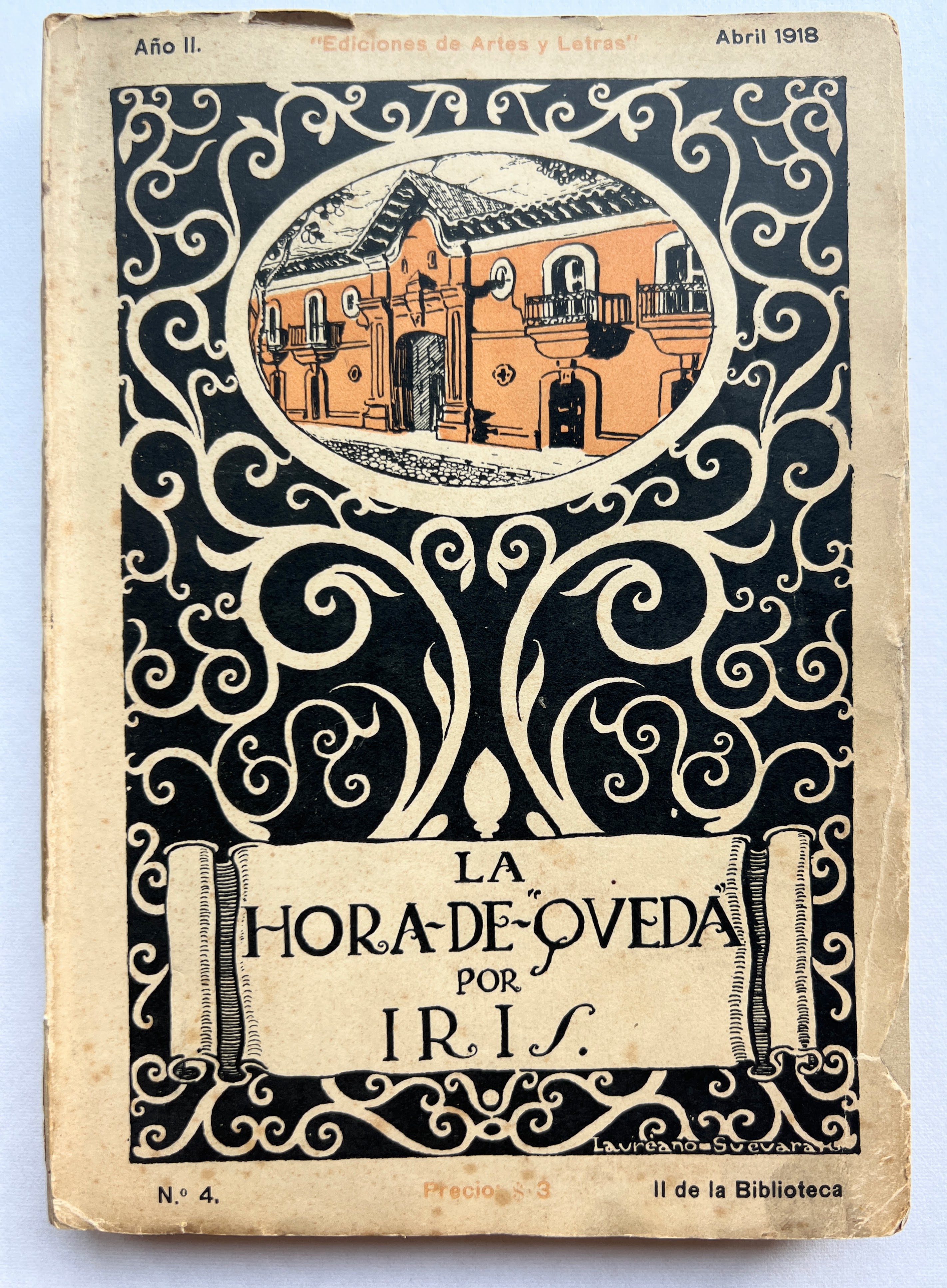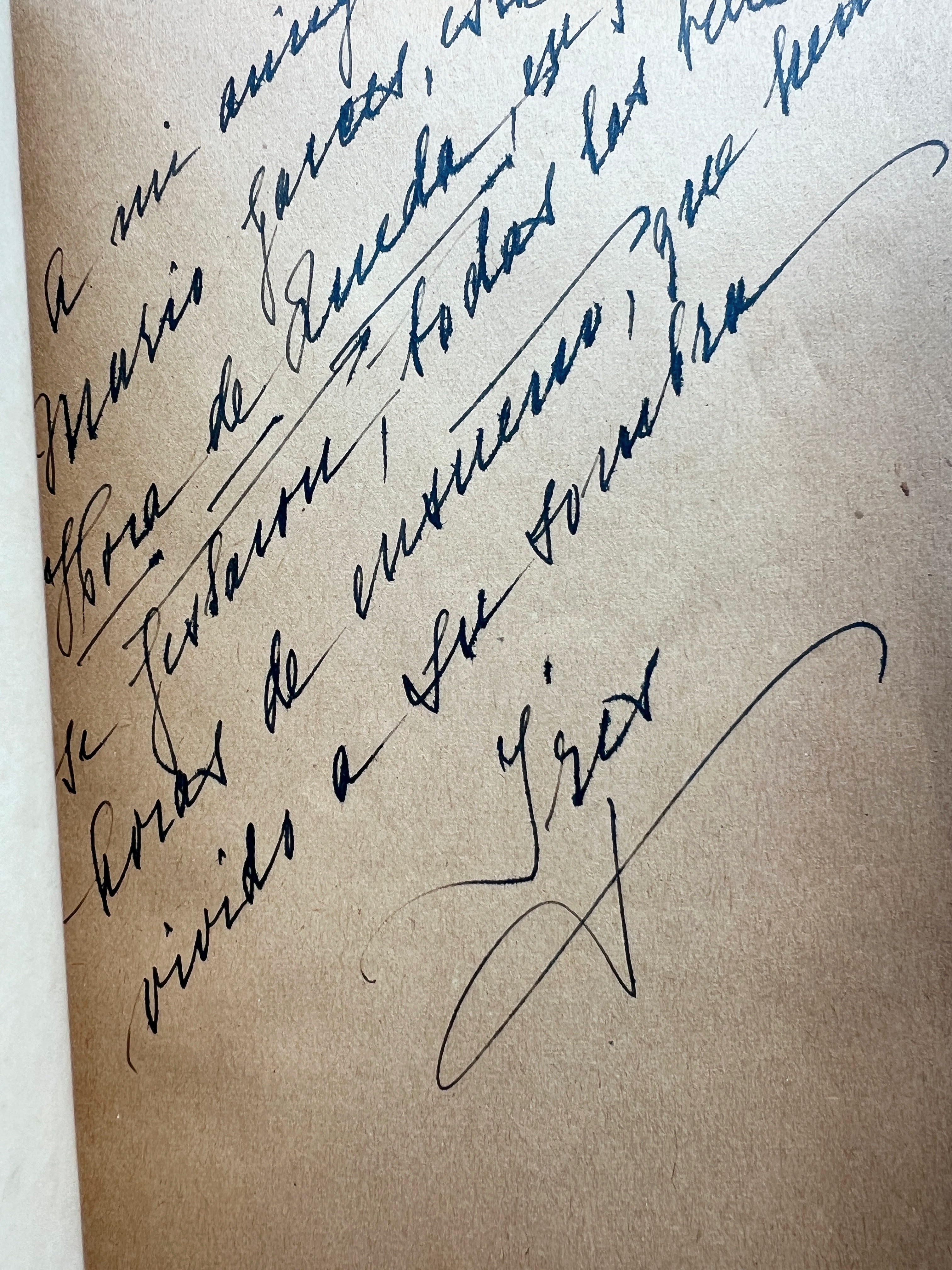GRAPH BOOKS: PRINTED MATTER FROM RADICAL ART AND SOCIAL MOVEMENTS.
FEMINIST HISTORIANS OF MATERIAL CULTURE.
La Hora de Queda: Novelas Cortas
Inés Echeverría Bello, 1918

[Echeverría Bello, Inés]. Iris. La Hora de Queda: Novelas Cortas. Santiago: Imprenta Universitaria, 1918. First edition. 19 cm, 223 pp.; signed manuscript dedication from the author to “mi amigo Mario …” on ffep, brittle paper chipped and toned, in pictorial wrapper with nouveau cover design by Laureano Guevara Romero, soiled, with small water stain verso, spine repaired with losses.
Inés Echeverría Bello (1868-1949) was a Chilean author who published under the pseudonym “Iris”. This collection of six short stories was her fifth book. Literary critic Elvira Santa Cruz Ossa (1886-1960) reviewed La Hora de Queda psuedoymously in Zig Zag. She praised the stories, deeply influenced by the spiritualist movement, for their description of the “repetitive and confined” life of the upper class woman, in which “neither ‘freedom of thought’ nor the ‘right to reason for themselves’ were present.” Santa Cruz Ossa also wrote that this monotony revealed the urgency of progressive (feminist) ideas: “[existía un] abismo entre aquel ambiente femenino de la ‘Hora de queda’ y el de la hora presente”, “abismo que comienza a llenarse con el sacrificio de algunas, con la valentía de muchas, con la rebelión callada y vibrante de todas… Abismo que va llenándole el heroísmo de las que enarbolan el estandarte de ideas progresistas en medio del escarnio de timoratos y retrógrados.”
Echeverría Bello is generally acknowledged as one of Chile’s early feminists, for her work founding the women’s intellectual salons, The Reading Club and The Ladies Club, and for her passionate advocacy against domestic violence following the murder of her daughter Rebeca by Rebeca’s husband, Roberto Barceló (1934).
Cited: [Santa Cruz Ossa, Elvira]. Roxane. “Al margen de la hora de queda”. Zig-Zag. Número 699, Santiago, 13 de julio de 1918.
$275
